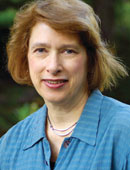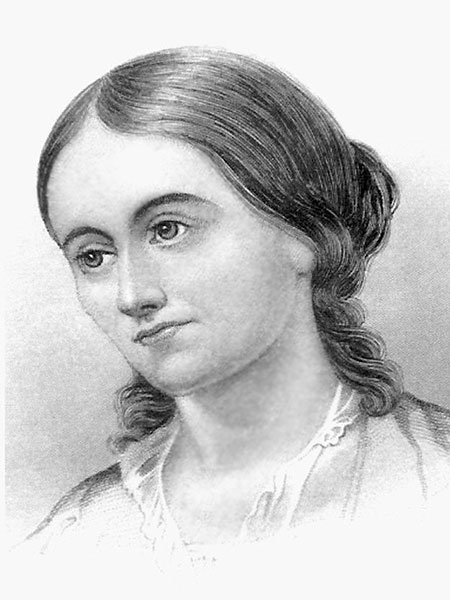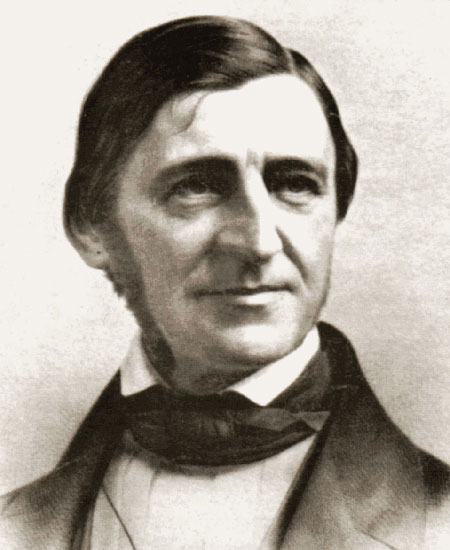Marshall discusses Pulitzer win
Doors continue to open for author Megan Marshall, the associate professor in Emerson’s Writing, Literature, and Publishing Department who won a Pulitzer Prize in April for Margaret Fuller: A New American Life (2014, Houghton Mifflin Harcourt).
 Her latest opportunity: She was asked to serve on the panel that reviews new words to be added to the American Heritage Dictionary.
Her latest opportunity: She was asked to serve on the panel that reviews new words to be added to the American Heritage Dictionary.
“That’s going to be exciting and humbling,” Marshall said in a recent interview. “I feel that’s one of the highest honors.”
She is also spending the 2014-15 academic year as a fellow at the Cullman Center for Scholars and Writers of the New York Public Library to work on a biography of Elizabeth Hawthorne, “Nathaniel’s eccentric, reclusive older sister,” she said.
Marshall’s award marks the first time an Emerson faculty member has won the Pulitzer while teaching at the College. Two former faculty members have won Pulitzers, but not while they worked for Emerson. (Poet James Tate won in 1992; and journalist Johnny Diaz was on a team at the Miami Herald that won in 2001.)
“One of the most gratifying things” as a result of the Pulitzer, Marshall said, “is just an increased interest in Margaret Fuller, which is what I set out to do—to bring her back into the public consciousness. I’ve had many more invitations to speak, to read, and to give interviews.”
Marshall’s biography of Margaret Fuller—the trailblazing mid 19th-century author, journalist, and feminist from Cambridge who helped lead the Transcendentalist movement with Ralph Waldo Emerson and Henry David Thoreau—received rave reviews in the months before it won the Pulitzer in April.

Margaret Fuller, born in Cambridge, became a trailblazing 19th-century feminist, writer, and Transcendentalist.
Yet, Marshall—whose 2005 biography The Peabody Sisters was also nominated for a Pulitzer—said she was not expecting to win. In fact, she had forgotten the winners would be announced last April 14, saying, “Everybody but me knew.”
“I had really persuaded myself that it was not going to happen,” Marshall said. “The Peabody Sisters was a finalist and it was the work of 20 years, and it was a big, big book. Margaret Fuller is kind of a big book, but it’s not as big as that.”
Reviewers have noted Marshall’s uncanny ability to personify Fuller—who died alongside her younger Italian husband and their 2-year-old son in a shipwreck in 1850—in a way that resonates with today’s readers.
“At its roots, [the biography is] a coming-of-age story of a brainy, not-so-beautiful girl that so many of us can identify with,” Marshall said. “She just happened to be so much brainier than the rest of us.”
The biography is pieced together with quotes and entries from Fuller’s actual diaries, published works, and correspondences with family, acquaintances, and friends—including Ralph Waldo Emerson, with whom she became close. Shortly before her death at age 40, Fuller worked as a war correspondent in Italy for the New York Tribune.

Ralph Waldo Emerson
“I tried to come up with a new way of writing biography—one that’s very alive and novelistic but without the reader getting the feeling that I’m making anything up,” said Marshall, who described Fuller’s life as “incredibly cinematic.”
Many of Fuller’s struggles revolved around finding a male suitor while simultaneously becoming a leading feminist and one of the most famous writers of the 19th century.
“She was tormented to have ‘a man’s ambitions and a woman’s heart,’ which was how she phrased it,” Marshall said.
Fuller’s lessons are well received by Marshall’s undergraduate and graduate WLP students, who study Fuller, Emerson, and Thoreau.
“Fuller was interested in both men and women realizing their full potential, and she was opposed to any kind of limitations on that for men or women,” Marshall said. “[The] students are always very grabbed by her style of feminism, which is so modern, so 21st century.”
Marshall said she has lots of people at Emerson to thank for helping her during the six years it took to write Fuller, which also won a Massachusetts Book Award. In addition to being granted a leave of absence by the College in the fall of 2010, she was provided a Huret Faculty Development Award to conduct research in Rome, where Fuller spent her pivotal, final years.
Reflecting on winning the Pulitzer, the Harvard-educated author said the award has helped her “develop a reputation in all kinds of ways.”
“I see now that it makes an enormous difference as far as how the general public perceives your work,” she said. “People in the field had already let me know they admired the book, and I wouldn’t want to have the popular success without satisfying people in the field. To accomplish both is a dream come true.”
Marshall acknowledges the Pulitzer as a major honor, but said it doesn’t change the quality of her work.
“As a writer, you have to believe in your work whether it wins a prize or not,” she said. “The book isn’t any different because it won the prize.”
Categories